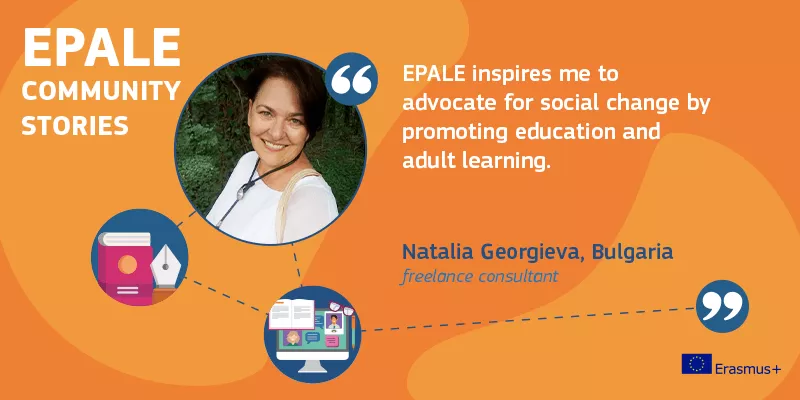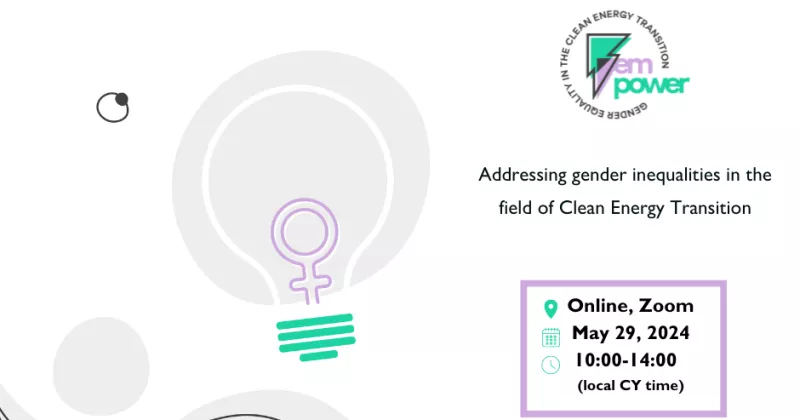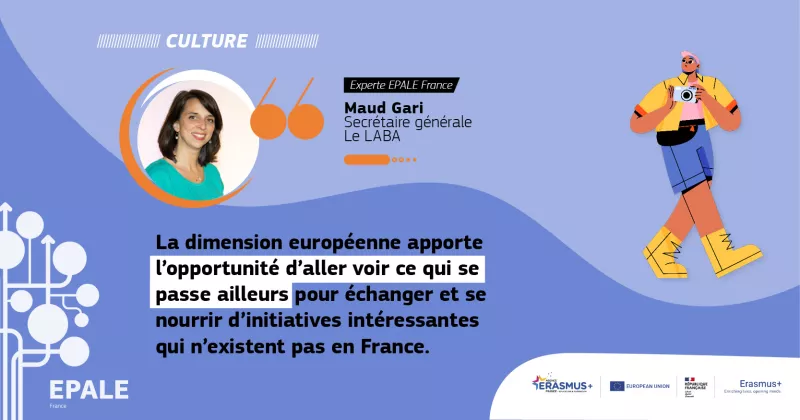Natalia Georgieva, a Community Story from Bulgaria

I am a freelance consultant with more than 15 years of experience in the areas of education, adult learning, and advocacy for social change.
I have participated in various projects aimed at enhancing the educational achievements of children, and the integration into the labour market of young people from marginalised communities.
As a trainer I have developed experience-based, practical and interactive training programs for librarians, teachers and state administration representatives.
Since 2016 I have been an external expert for EPALE Project in Bulgaria.
This has given me the opportunity to develop a training program on Storytelling for EPALE for stakeholders and to publish my own stories on adult learning in the blog section of the e-platform.
To date I have written and published more than 20 stories on the EPALE Bulgaria platform which seek to present best practices from the adult learning sector in Bulgaria.
EPALE inspires me to advocate for social change by promoting education and adult learning.
COVID-19: it’s time to turn the page
COVID-19 catalyzes many processes in different spheres, incl. education. Bulgarian schools, for example, have had to switch quickly and extensively, with teachers and students teaching and learning remotely online.
Were they ready for this change?
A national representative survey entitled “Online experiences of children in Bulgaria: risks and safety”1, conducted in 2016 revealed that 97% of Bulgarian children aged 9-17 use the internet. The age at which children ‘go online’ is steadily decreasing, with some children starting as early as 4 (3%) or 5 (6.8%). Almost 24% have had their first contact with the web by the age of 7, whilst almost 90% become internet users by the time they turn 11.
More than half of the children engage in the following online activities almost daily: watching video clips, using social networks, listening to music and/or playing games. At the same time, only 22% of children use the Internet for activities related to school and education on a daily basis.
Another national survey on the attitudes of children and young people in Bulgaria2 shows that one in three children feels significantly alienated from school, perceiving it as external coercion. This hypothesis is supported by their criticism of teaching methods and of the requirements on the introduction of modern technologies in the learning process.
COVID-19 unexpectedly broke the mould of traditional education, creating a new model for communication between students, teachers and parents.
Today's children, who before were preparing for their lessons by reading mostly textbooks and handbooks, have had to learn and study remotely online.
Learning online has become as important as social networking, internet surfing, watching movies and listening to music online.
If the traditional way of teaching dominated the school system up until now, with those teachers and pedagogical professionals who used innovative approaches to teaching being in the minority, today almost everyone is using digital platforms such as Google Classroom, MS Teams, Google Meet, ZOOM, and Webinars. Almost everyone has started to adapt the curriculum to the requirements of various platforms, to create teams with colleagues, and to develop presentations, tests and coursework.
So, in the state of emergency provoked by COVID-19, schools have switched to a digital mode of teaching and at least for now, the system appears to be working.
The Ministry of Education and Science has urgently created a National Electronic Library where teachers can publish their educational materials, didactic and methodological guidelines and share innovative teaching practices and approaches.
According to the Ministry, more than 2300 educational materials and over 4000 files were uploaded to the platform in just one week, and the number of downloaded resources exceeded 131000.
With the good news come many questions about this (on the whole) novel situation for Bulgarian schools, teachers and children.
Are Bulgarian teachers sufficiently trained to be able to work in an interactive environment? Are they ready to replace outdated and inadequate methods with modern teaching approaches? Are there enough pedagogical innovations to be used in this new situation? Does the digital competence of children translate into digital literacy etc.?
There are so many questions yet to be answered.
COVID 19 has made it clear that now is the time to turn the page in education.
[2] https://www.unicef.org/bulgaria/media/2696/file/BGR-voices-of-children-report-en.pdf






EPALE Malta